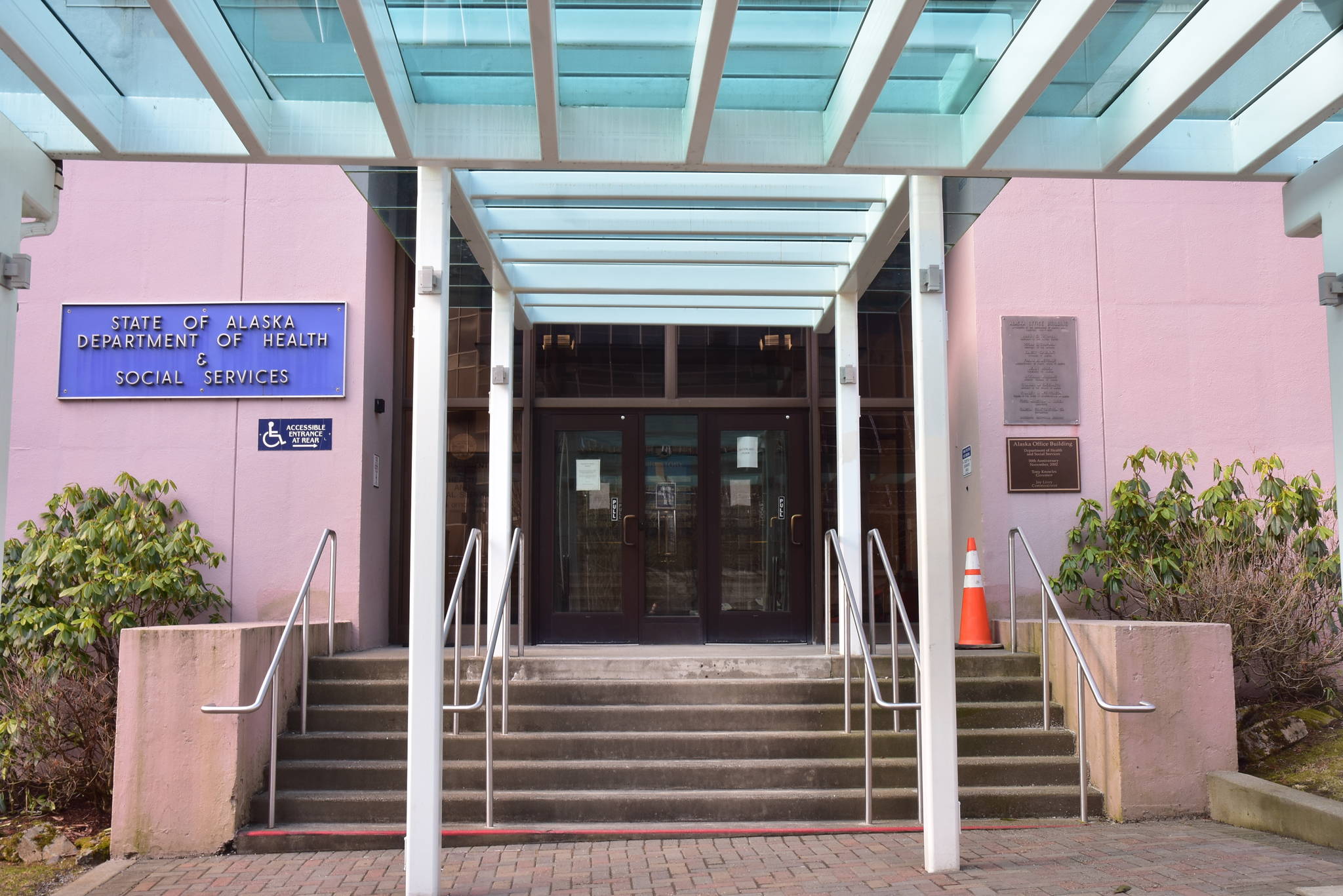Lawmakers are questioning the legality of Gov. Mike Dunleavy’s use of an executive order to split the Department of Health and Social Services, saying the move would open the state to costly litigation.
At a House Health and Social Services Committee meeting Saturday, lawmakers reviewed a letter from the Legislative Legal Division outlining dozens of instances in which the executive order made substantive changes to existing law, something not allowed by executive order.
Many groups — notably tribal health care groups — have voiced opposition to the split, but in an interview Monday, Sen. Bill Wielechowski, D-Anchorage, said regardless of the intended effects of the split, the executive order being used to accomplish it is a violation of the state constitution.
“The constitution gives the governor the right to reorganize departments; however, that does not give the governor carte blanche to enact substantive law and that is what he’s doing,” Wielechowski said. “It’s written like a piece of legislation. There are at least 36 different substantive changes that our legislative attorneys have identified.”
Big changes
Wielechowski said his argument was not necessarily against splitting the state’s largest department, but against the way the governor was choosing to do it. He pointed to the legal memo which says proposed changes such as preventing registered nurses from pronouncing the death of a patient at an Alaska Pioneer Home or Alaska Veteran Home and adding board members to several commissions constitute substantive changes to existing law.
[Health department split would hurt Alaska Natives, leaders say]
“It appears that this executive order would impermissibly create substantive changes to existing law. However, this is a lengthy, complex, and dense executive order and it is possible that additional legal questions and issues may exist,” states the memo, written by Andrew Dunmire, legislative counsel for the Legislative Legal Division.
The governor’s office counters the proposed changes fall well within the purview of a governor’s executive order, and provide examples of other orders which included substantive changes. A Feb. 24, memo from the acting Attorney General Treg Taylor to the Senate Finance Committee notes a 2003 order under former Gov. Frank Murkowski which reorganized DHSS, including moving the Division of Senior Services and the Alaska Pioneer Homes from the Department of Administration to DHSS.
“Gov. Dunleavy is simply exercising his authority to improve the level of services provided by the department through a reorganization,” Dunleavy spokesperson Jeff Turner said in an email.
Litigation lurking
As to the line between substantive changes and lesser ones, Dunmire told lawmakers there was a lot of gray area and his memo tried to detail that. Dunmire cited the issue with nurses at the Pioneer Homes as a substantial change, saying the proposal would substantively alter their duties.
Those are the kinds of changes that could lead to litigation, Weleichowski said. Changes to the duties of public employees could lead to legal challenge from unions, he said, who were just one of many groups who might bring litigation.
The governor introduced his proposal late last year, and the suggestion was met with immediate opposition from health care and tribal groups. The executive order was introduced into the Legislature on Jan. 25, and lawmakers have 60 days to disapprove. If they fail to act by March 24, the order automatically goes into effect.
The changes in the order, including splitting DHSS into the Department of Health and the Department of Family and Community Services, would be implemented July 1, 2021, according to the governor’s office.
A special concurrent resolution has already been drafted to disapprove of the order, and needs only a simple majority of a joint session of the Legislature to pass. However, with current health mitigation rules in place, lawmakers have yet to find a way to hold a joint session.
But Weleichowski said he was optimistic the memo would raise a few eyebrows and motivate lawmakers to act.
“The Legislature is able to move very quickly when it wants to,” he said.
• Contact reporter Peter Segall at psegall@juneauempire.com. Follow him on Twitter at @SegallJnuEmpire.

